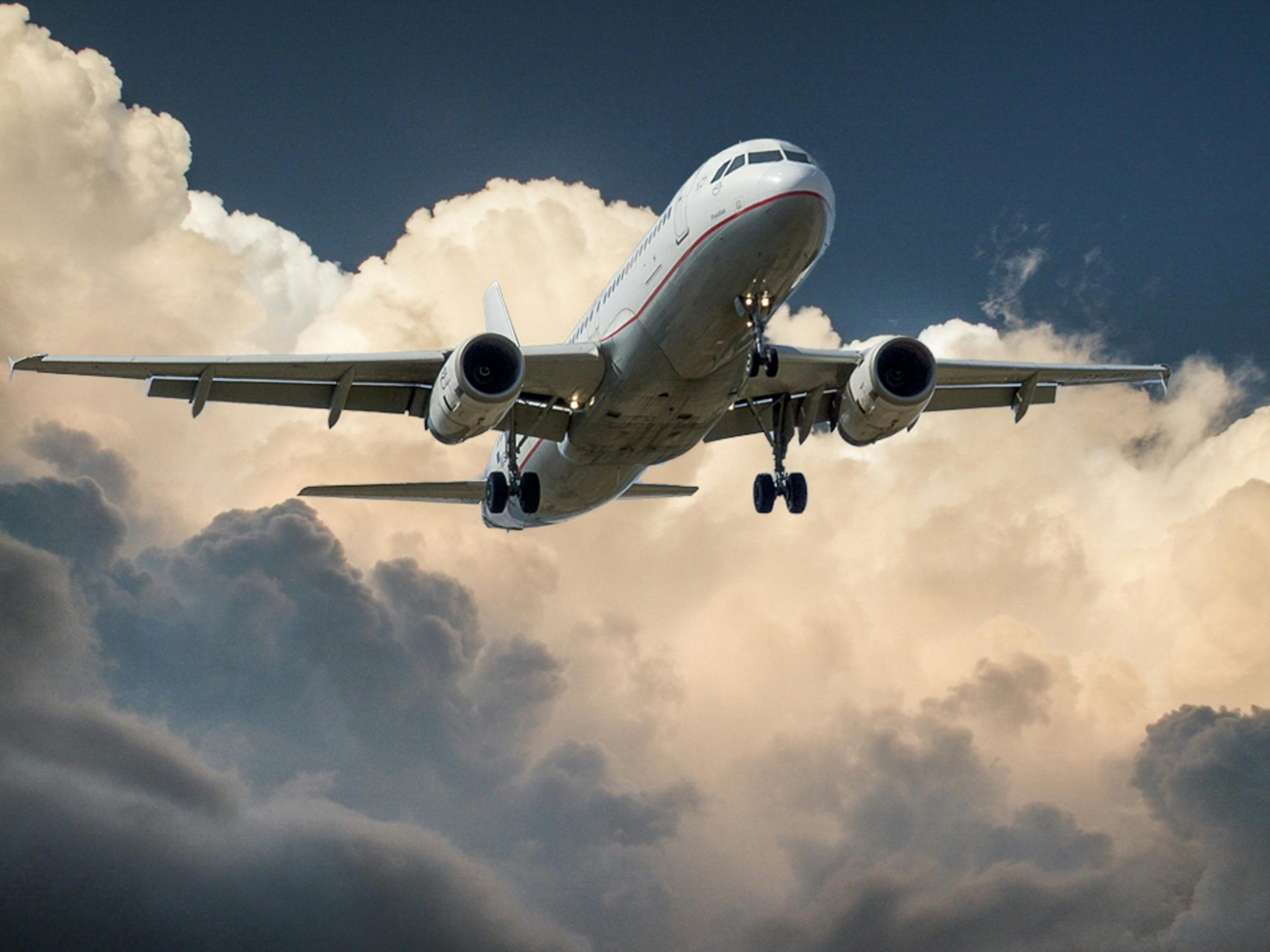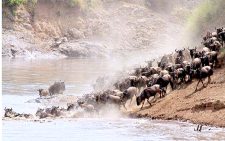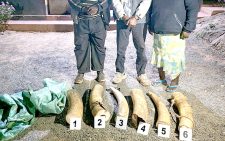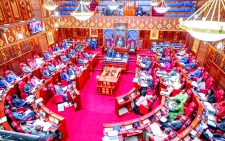Ng’ang’a Kamau’s stint as travel organiser in school saw him get into the tourism industry to target an untapped market
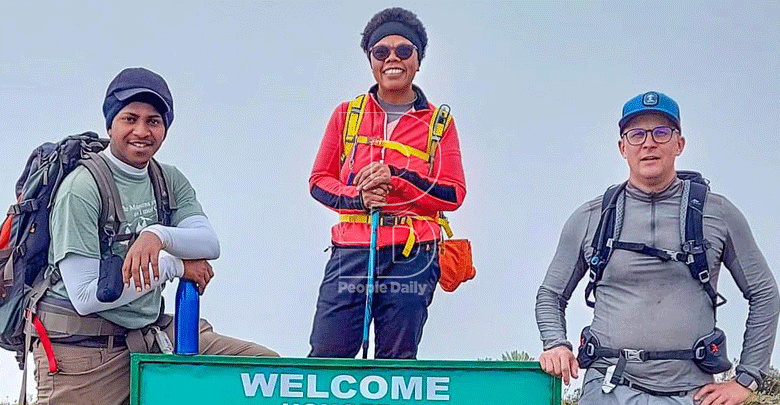
During his high school days, Ng’ang’a Kamau, the CEO of Wild Springs Adventure, had the passion of organising travel groups for school wildlife and environment clubs.
He spent time outdoors and discovered that he enjoyed leading the teams and putting logistics together.
”The praise reports were an eye opener for me,” he recalls. “It was affirmation that I would do this in future and I ended setting up my own company as soon as I finished my degree in technology tourism and travel management,” he adds.
When joining the tourism industry, Ng’ang’a observed that outdoor activities were barely offered as tourism packages.
Tour companies then rather focused on the traditional safari tours. He opted to focus on creating a safe platform where people would connect with themselves, a self-discovery journey and more importantly, enjoy nature while on these activities.
He began with city tours in 2015, as he felt that there was rich history surrounding ‘the city under the sun’.
The trips used to happen every Saturday and most clients were expatriates or people who had just arrived in Nairobi.
Outdoor fun
“This helped me research more and find answers for series of questions I was being asked.
From time to time, guests would ask whether I organised other trips, and I began to expand into other destinations.
That’s how I landed in organising group trips that have seen us grow into the big company,” he narrates.
Every weekend he takes guests for outdoor trekking trips to Mt Kenya, and Mt Kilimanjaro every month, among other daily safari tours.
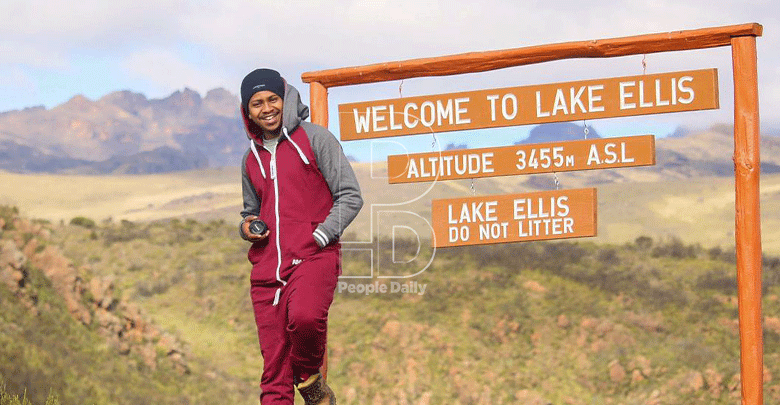
However, getting a quorum was the biggest issue when he started out, but it picked up after six months.
“One thing people need is a well outlined structure; it helps them plan particularly for the Kenyan job market.
With this realisation, we would make a three-month calendar with destinations we are going to visit.
We also do a recreational trip if it’s a place we have not visited before and then later on, we set date, market the trip and eventually launch it.
Consuming a product before a client gives you the whole idea of the destination and any other logistics,” he explains.
He offers three major products: outdoor activities, which include hiking, trekking and camping trips; safari tours such as fly-in and by road wildlife safaris; and missionary tours, which focus on empowering local communities through sustainable programmes.
His company focuses on creating network, friendships and ultimately a growing community of outdoor lovers who love environmental conservation.
His business has also expanded to having a shop that sells outdoor wear, gears and equipment.
“We have been serving hikers, runners and campers and we have noticed that products have been moving fast.
What is needed now is investment in quality products since most of these products are second hand items, but we also stock select new products,” he says.
When it comes to challenges, the travel enthusiast notes that unhealthy competition and the lack of standard regulation of travel companies are quite common.
Financial burden
“People just open social media pages without proper registration (with regulatory bodies) and this results in conning incidences, which affects our business,” he notes.
Ng’ang’a adds that one of the mistakes new tour companies do is poor pricing as market entry strategy.
“Providing tour packages with undercharged elements risks the reputation of the company. If the company undercharges, the delivery process is affected.
While it’s not good to put all the financial burden on the customers by offering them tour packages that are out of their investment limits, it is good to include all the operations cost to avoid breakdowns and loss of future business.
“This happens a lot when you realise you undercharge and then ask clients for more money or fail to communicate hidden costs,” he advises.
He gives an example of the Nairobi National Park package. For a long time rate, the per person has always been between Sh4,000 and Sh10,000, but with the pandemic, the cost has reduced to Sh1,500 per person.
“Honestly from a business angle, no much profit can be realised and that spoils the chain of supply,” he says.
Authentic experiences
He also adds that most tour companies overcommercialise instead of offering authentic experiences.
For instance, when it comes to Masai Mara, the villages around can do dances for free, a chance for the guests to have a feel of the real authentic culture.
However, this activity has been overcommercialised, as guests can do other stuff with the locals such as learning their culture or even eating their food.
When the travel company fails to invest in the right personnel to cut cost, that too affects the business.
“As many try to save on costs, they end up hiring the wrong team for particular positions—sometimes untrained people—forgetting they will represent their brand.
Tourism and hospitality is such a sensitive industry and requires the right people in the business,” Ng’ang’a explains.
While the pandemic affected most tour business including his, Ng’ang’a saw an opportunity and began sourcing for travel gears across the globe to enhance outdoor experience.
“Working from home concept was introduced, and from guys spending so much time indoors, there emerged a growing need to get outdoors. With that, they started asking for the gears,” he says.
With the pandemic also came an entry in Austria through partnership with friends; so far they have two offices.
“There is a lot of potential and untapped market. With the market in Nairobi plus international potentials, there is so many possibilities.
I would encourage anyone to join tourism with intentions and passion to make Kenya’s hospitality and tourism industry an epitome of travel,” he says in conclusion.
